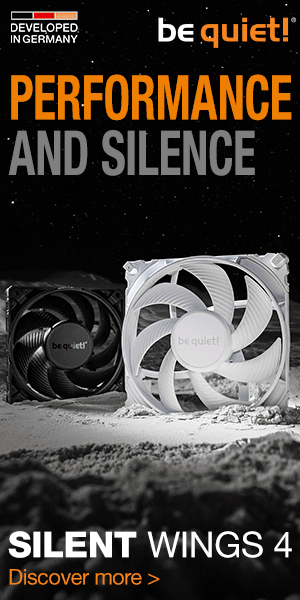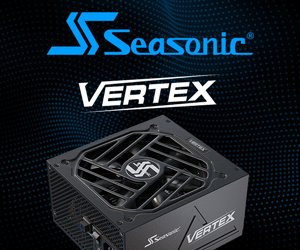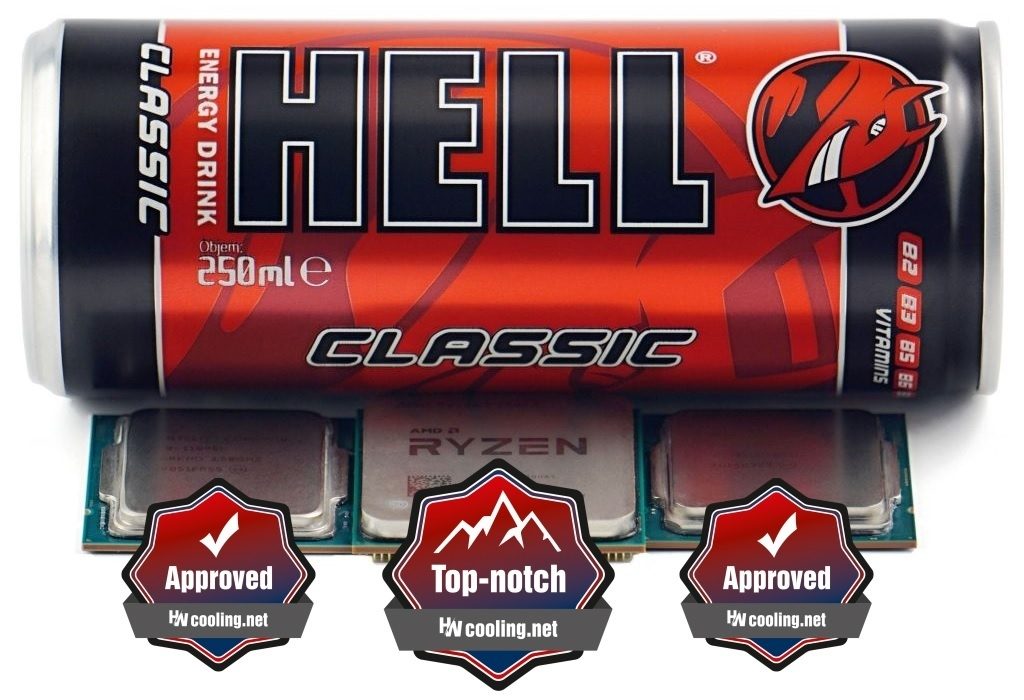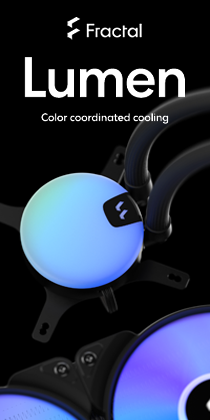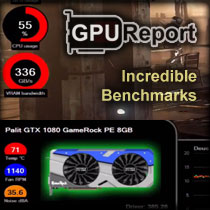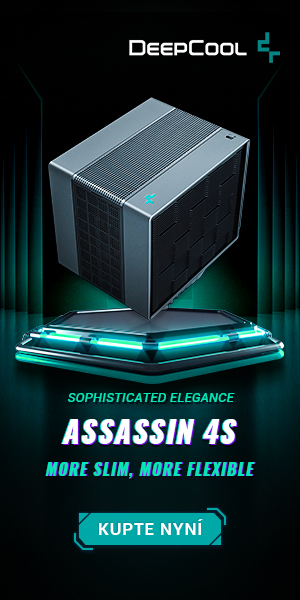Conclusion
Have you already created a perfect picture of the current generation of desktop processors or are you still willing to reconsider some things? For the start of HWC processor tests, we’ve picked the hottest hardware from Intel’s mainstream offer – the Core i9-11900K, which is going to compete against the AMD Ryzen 9 5900X in 40 chapters full of information. The older Core i9-10900K has also successfully been re-tested by the new methodology.
Conclusion
The fact that the multithreaded performance of the Core i9-11900K will be lower than that of the Ryzen 9 5900X was already determined by the composition of its cores—eight is simply not enough against twelve. Those eight Ci9-11900K cores are not even enough against ten cores of the older Ci9-10900K. However, Rocket Lake has higher rate of instructions per cycle and in some multithreaded tests lags behind the Comet Lake with more cores only slightly, while the Ci9-11900K has 200 MHz lower all-core boost clock.
The Ci9-11900K is on average faster in games than the Ci9-10900K, but exceptions apply when the Comet Lake keeps the lead due to the lower L2 and L3 cache latency. Such games include Assassin’s Creed: Valhalla. For the vast majority of games, however, the Rocket Lake achieves higher performance, which is always redeemed by higher power consumption though. While so far (including the situation with Ci9-10900K) it has stayed at the limit of 125 W, the Ci9-11900K exceeds this value quite significantly. Of the tested games, the most CPU demanding was Total War Saga: Troy, exceeding the PL1 (= TDP) limit by up to 28 W. On motherboards that comply with Intel’s recommended Tau time limit for maximum Boost, there may be a slight decrease in game performance.
But the comparison of Ci9-11900K with Ryzen 9 5900X is remarkable in this respect. The Rocket Lake’s lead in average gaming performance is minimal and only noticeable in higher resolutions, from QHD (1440p) onwards. The R9 5900X is better in FHD, where this processor can be a better choice for setups with lower resolution (FHD) and high refresh rate monitors. For higher resolutions, Intel and its Core i9-11900K are still performing better overall. But this is not always true (such as in MS Flight Simulator,where the Ryzen 9 5900X is also faster in UHD), but in most cases the highest performance Rocket Lake is in the lead in higher resolutions.
Rocket Lake, compared to Comet Lake, also has a significantly higher single-threaded performance. We have already mentioned higher IPC, and when we add that 100–150 MHz higher core clock rate is achieved in practice, only Ryzen 9 is the equivalent opponent again. And it’s like on a seesaw, AMD is on top in some respects and the efficiency or performance per watt is very similar, too.
However, the efficiency in the use of all cores is clearly on the side of AMD. But watch out for video encoding on the Core i9-11900K. Rocket Lake uses the AVX-512 instructions in the default settings with the x264 encoder, which results in a significant increase in power consumption, which easily exceeds the second power draw limit (PL2) and tops at 300 W. This is because the computing of 512-bit instructions processes 2x more numerical values at once, and also the transfer of data with twice the width is more energy-intensive, which transfers to the already bad efficiency.
This increase in power consumption could be offset by a decrease in clock speed and voltage while using the AVX-512, but the Core i9-11900K on our test motherboard did not behave like this and did not reduce the clock, resulting in extreme power consumption.. This furious Rocket Lake is already kind of difficult to cool with conventional coolers. But cooling small AMD chiplets is difficult as well, even at low power draw of around 60 W. Typically, it is a single-threaded load, where it is sometimes a problem to even cool one core to a temperature that will not be limiting for achieving stable boost. Its operation dynamically depends on the temperature.
But in conclusion, the 12-core 5900X cannot be blamed for much, except for the more complicated heat transfer. Performance per watt is higher not only in gaming. In non-gaming tasks, the price-performance ratio is also significantly better. In games, the R9 5900X is similar to the Ci9-11900K, but overall it is definitely a processor that has universally higher performance with better operating characteristics. And since we’re already in a relatively high-end class, the AMD Ryzen 9 5900X well deserves our “Top notch” award for its features.
On the other hand, the Core i9-11900K may be a slightly better choice for high-end gaming computers. However, multi-threaded performance in relation to price is worse (but not bad), but again, this processor can be cooled better, even though it has lower efficiency at maximum performance. This processor definitely does not deserve the hate it receives. The outdated manufacturing process is one thing, but the main thing is the present performance advance compared to the previous generation. For some tasks, the Core i9-11900K processor may be of particular interest for high and stable single-threaded performance. That’s why we’re giving this processor, like the Core i9-10900K, our “Approved” award.
| Intel Core i9-11900K |
| + Top-notch single-threaded performance |
| + High single-core boost clock speed – 5.3 GHz |
| + Vyšší výkon na takt (IPC) v porovnaní s Core i9-10900K |
| + The highest performance desktop gaming processor in higher resolutions (QHD and up) |
| + AVX-512 instruction set support |
| + Modern decoder supporting AV1 |
| + iGPU performance has finally increased intergenerationally |
| + Support for HDMI 2.0b (i.e. 4K at 60 Hz without the need for a graphics card) |
| - Worse price-performance ratio in terms of multi-threaded performance |
| - Worse efficiency (performance per watt) compared to AMD Ryzen 5900X |
| - Higher power draw in games, sometimes over 150 W |
| - Obsolete 14 nm manufacturing process |
| Manufacturer's suggested retail price: EUR 539 |
| AMD Ryzen 9 5900X |
| + Top-notch single-threaded performance |
| + 12 cores and 24 threads on a mainstream AM4 platform |
| + Very high multithreaded performance. Significantly higher than that of the Ci9-11900K |
| + High instructions per cycle |
| + Nice efficiency (performance per watt) |
| + Higher gaming performance in lower resolutions (FHD and lower) than Ci9 Rocket Lake |
| + Favorable price-performance ratio for a high-end processor |
| + Modern 7 nm manufacturing process |
| - Worse heat transfer from the small chip (more complicated cooling) |
| - No integrated graphics |
| Manufacturer's suggested retail price: EUR 549 |
| Intel Core i9-10900K |
| + Solid multithreaded performance |
| + High single-threaded performance |
| + Over 5 GHZ single-core boost clock speed |
| + High gaming performance |
| + In some games higher performance than the Ci9-11900K thanks to lower cache latency |
| + + Higher performance per watt than the newer Ci9 Rocket Lake CPU. Both gaming and non-gaming |
| + Relatively favorable price. Some shops offer it for EUR 450 |
| - Slower than the Ryzen 9 5900X for the vast majority of tasks |
| - Worse efficiency (performance per watt) compared to the AMD Ryzen 5900X |
| - No PCI Express 4.0 support |
| - Obsolete 14 nm manufacturing process |
| - Only HDMI 1.4b (i.e. 4K up to 30 Hz) |
| Manufacturer's suggested retail price: EUR 488 |
We’ve got the games for our tests from Jama levova
Special thanks to Blackmagic Design (for DaVinci Resolve Studio license), Topaz Labs (for DeNoise AI, Gigapixel AI and Sharpen AI licenses) and Zoner (for Photo Studio X license)
- Contents
- 2× Core i9 (11900K + 10900K) and Ryzen 9 5900X
- Methodology: performance tests
- Methodology: how we measure power draw
- Methodology: temperature and clock speed tests
- Test setup
- 3DMark
- Assassin’s Creed: Valhalla
- Borderlands 3
- Counter-Strike: GO
- Cyberpunk 2077
- DOOM Eternal
- F1 2020
- Metro Exodus
- Microsoft Flight Simulator
- Shadow of the Tomb Raider
- Total War Saga: Troy
- Overall gaming performance
- Gaming performance per euro
- PCMark and Geekbench
- Web performance
- 3D rendering: Cinebench, Blender, …
- Video 1/2: Adobe Premiere Pro
- Video 2/2: DaVinci Resolve Studio
- Graphics effects: Adobe After Effects
- Video encoding
- Audio encoding
- Broadcasting (OBS and Xsplit)
- Fotky 1/2: Adobe Photoshop and Lightroom
- Fotky 2/2: Affinity Photo, Topaz Labs AI apps, ZPS X, …
- (De)compression
- (De)cryption
- Numerical computing
- Simulations
- Memory and cache tests
- Processor power draw trend
- Average processor power draw
- Performance per watt
- Achieved CPU clock speed
- CPU temperature
- Conclusion



